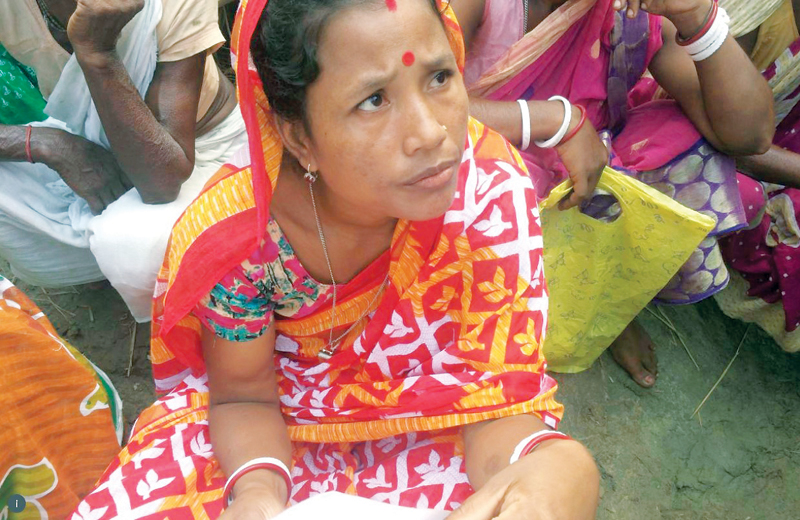

GUWAHATI: Abanti Deka had no idea when she married her husband that taking his name would jeopardise her Indian citizenship.
That was before authorities in Assam, where she has lived all her life, launched a vast and highly contentious exercise to register all its citizens as part of a campaign against illegal immigration.
When the register was published at the end of August, the names of nearly 2 million of the state’s about 33 million people were missing, plunging them into a bureaucratic nightmare that human rights experts fear could render some stateless.
Abanti was one of the unlucky ones.
“The notice came suddenly,” she said at her lawyer’s office.
“I don’t understand. I was born here, I have voted here before, but suddenly none of that matters any more.” Resentment against illegal immigrants has simmered for years in Assam with residents blaming outsiders for taking their jobs and land.
To be included on the register, residents had to produce documents proving their families lived in India before March 24, 1971, when hundreds of thousands of people began fleeing conflict across the border in what is now Bangladesh.
Lawyers and campaigners dealing with such cases say they present particular challenges for women.
About one in three women in Assam is illiterate — a higher proportion than for men — and many marry young, moving away from home and losing access to any documents that might prove their origins.
They also take their husbands’ names, a move that has complicated things further for many married women in a region where family names are markers of ethnic and religious affiliation. “The women have had to pay a higher price,” said Tanya Laskar, a lawyer working on such cases.
“They have struggled the hardest to get relevant documents and many failed because they were child brides or the family did not put their names on a land document because women are not entitled to property in many homes.”
SURNAMES MATTER
Debasmita Ghosh, the lawyer representing Abanti at a foreigners’ tribunal in Guwahati, said her client had not known that her married name would cause problems.
“They are Assamese and she was born here. She didn’t realise that the surname mattered,” Ghosh told the tribunal at a recent hearing.
“In fact, she never mentioned her father’s name to us either, we found it by chance in an old document she gave us,” said Ghosh, who works with the Human Rights Law Network, a collective that provides legal aid.
That proved Abanti, who does not know her exact age but is in her 40s, was called Deka before she married Adhir Hajong and took his name, which many associate with Bangladesh. Abanti said her ordeal had made her feel almost invisible, but knew she had to see it through for her children’s sake.
“If I am declared a foreigner, it will impact my children. They will not get jobs or benefits from the state,” she said. — Reuters
Oman Observer is now on the WhatsApp channel. Click here



